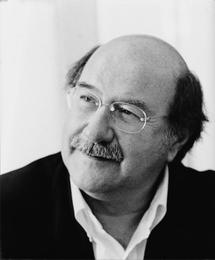Antonio Skármeta, a Chilean novelist, screenplay writer, playwright and television presenter "who captured his country's affections with warmhearted tales of its suffering and redemption through dictatorship and democracy," died October 15, the New York Times reported. He was 83.
 |
|
| Antonio Skármeta | |
President Gabriel Boric Font of Chile paid tribute on social media to the leading role Skármeta played in his country's cultural life, praising the author "for the life you lived.... For the stories, the novels and the theater. For the political commitment. For the book show that expanded the boundaries of literature."
Skármeta's literary career "traced the arc of Chile's modern political journey in lightly ironic stories that depicted the strategies of ordinary citizens faced with repression and arbitrary government," the Times wrote, noting that he also lived that life himself--as an activist supporting the leftist government of Salvador Allende in 1970; as a political exile in Argentina and in Germany after the 1973 coup d'état that inaugurated Gen. Augusto Pinochet's brutal 15-year military dictatorship; as host of El Show de los Libros, a popular 1990s TV program about literature, after democracy returned to Chile. He was also his country's ambassador in Berlin from 2000 to 2003.
His best-known work, the 1985 novel Ardiente Pacienca (Burning Patience), was translated into 30 languages and made into several films, including The Postman (Il Postino), released in 1994 and nominated for several Academy Awards (it won for best score).
Skármeta wrote more than a dozen other novels and short-story collections, many of which were translated into English. He won several Latin American literary awards as well as France's prestigious Prix Médicis in 2001 for the 1999 book La Boda del Poeta (The Poet's Wedding). Other books include Soñé Que la Nieve Ardía (I Dreamt the Snow Was Burning, 1975), Días del Arcoíris (The Days of the Rainbow, 2011), The Names of the Things That Were There (2011), and A Distant Father (2014). He also wrote several screenplays, including a number for the German director Peter Lilienthal, and five plays. Skármeta returned to Chile in 1989 and won the country's National Literature Prize in 2014.
"He sort of forged happiness out of sadness," Chilean-American writer Ariel Dorfman said of his friend. "All his characters are imbued with sadness, and yet have enormous energy and love and tenderness.... He was fascinated by human relations. And how difficult it is to understand one another."

